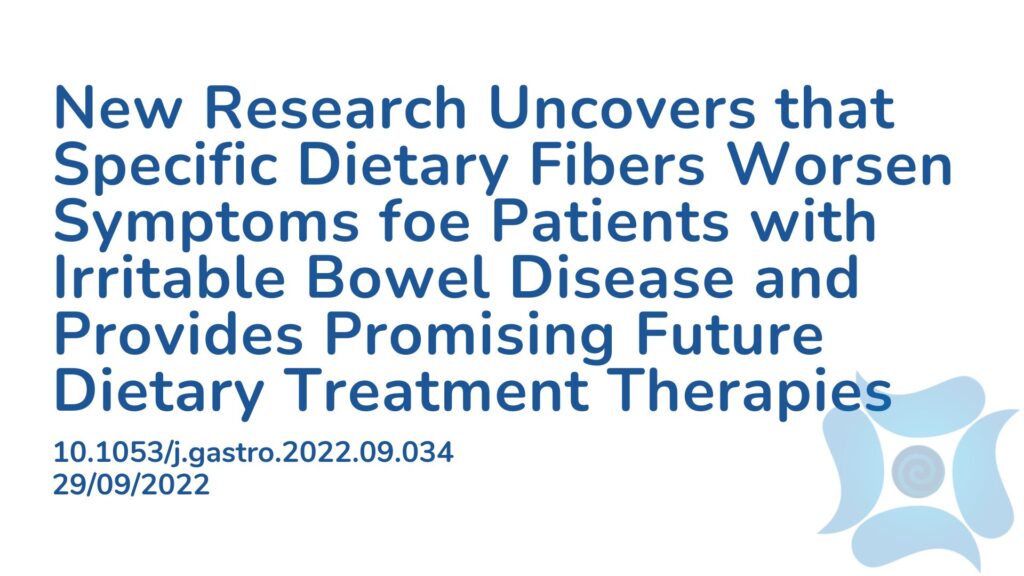Summary:There is a current gap in knowledge regarding why some dietary fibers worsen the symptoms of patients with irritable bowel disease (IBD). The first aim of this paper was to determine whether specific dietary fibers cause more harm than others for those with IBD, and why. The second aim was to use the results to understand if personalized dietary interventions could be prescribed to IBD patients to help alleviate symptoms, which can often be very debilitating. The research uncovered that particular types of dietary fiber cause an inflammatory response in some patients. β-fructan fibers in particular induced pro-inflammatory cytokines who causes symptoms to worsen. Thanks to this critically important discovery, the researchers are now working to develop a stool test which assesses the quantity and type of microbes found in each patient’s microbiome in order to predict who would respond negatively to specific types of dietary fibers, in order to personalize and tailor dietary interventions as a treatment method.
Abstract:
Background and aims: Inflammatory bowel diseases (IBD) are impacted by dietary factors, including non-digestible carbohydrates (fibers), which are fermented by colonic microbes. Fibers are overall beneficial but not all fibers are alike and some IBD patients report intolerance to fiber consumption. Given reproducible evidence of reduced fiber-fermenting microbes in IBD patients, we hypothesized that fibers remain intact in select patients with reduced fiber-fermenting microbes and can then bind host cell receptors, subsequently promoting gut inflammation. Methods: Colonic biopsies cultured ex vivo and cell lines in vitro were incubated with oligofructose (5g/L), or fermentation supernatants (24hr anaerobic fermentation) and immune responses (cytokine secretion [ELISA/MSD] and expression [qPCR]) were assessed. Influence of microbiota in mediating host response was examined and taxonomic classification of microbiota was conducted with Kraken2 and metabolic profiling by HUMAnN2, using R software. Results: Unfermented dietary β-fructan fibers induced pro-inflammatory cytokines in a subset of IBD intestinal biopsies cultured ex vivo, and immune cells (including peripheral blood mononuclear cells). Results were validated in an adult IBD randomized controlled trial examining β-fructan supplementation. The pro-inflammatory response to intact β-fructan required activation of the NLRP3 and TLR2 pathways. Fermentation of β-fructans by human gut whole-microbiota cultures reduced the pro-inflammatory response, but only when microbes were collected from non-IBD or inactive IBD patients. Fiber-induced immune responses correlated with microbe functions, luminal metabolites, and dietary fiber avoidance. Conclusion: While fibers are typically beneficial in individuals with normal microbial fermentative potential, some dietary fibers have detrimental effects in select patients with active IBD who lack fermentative microbe activities.
Article Publication Date: 29/09/2022
DOI: 10.1053/j.gastro.2022.09.034



